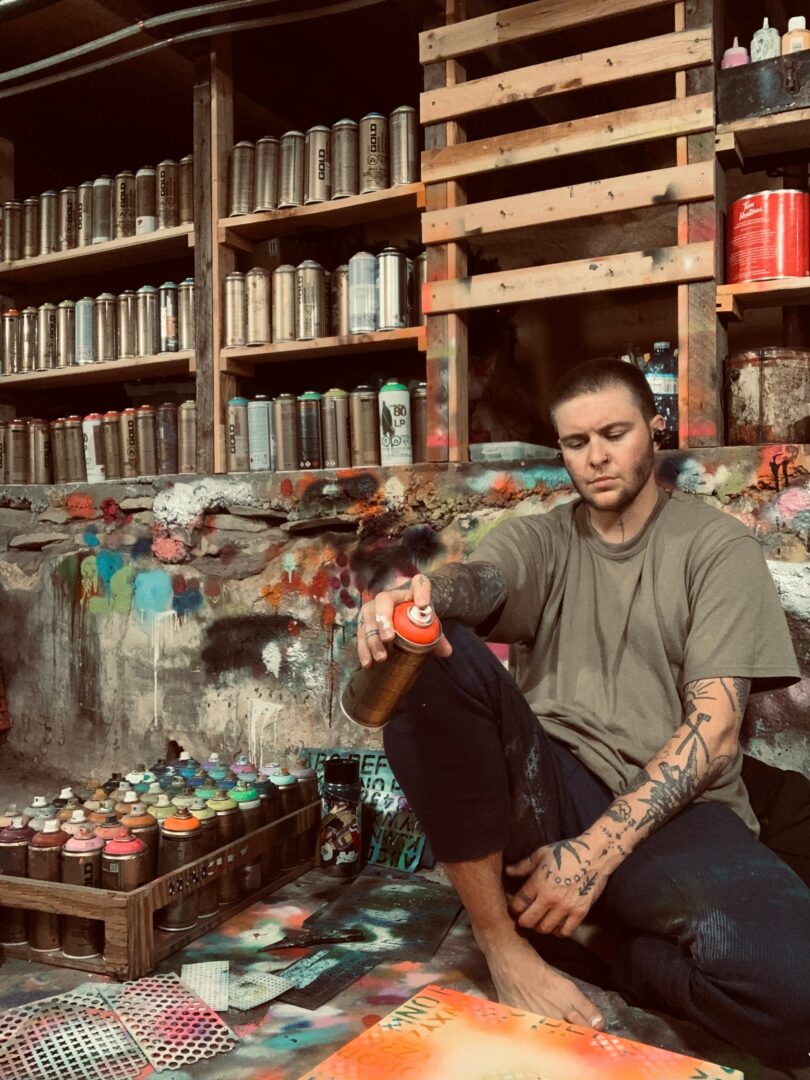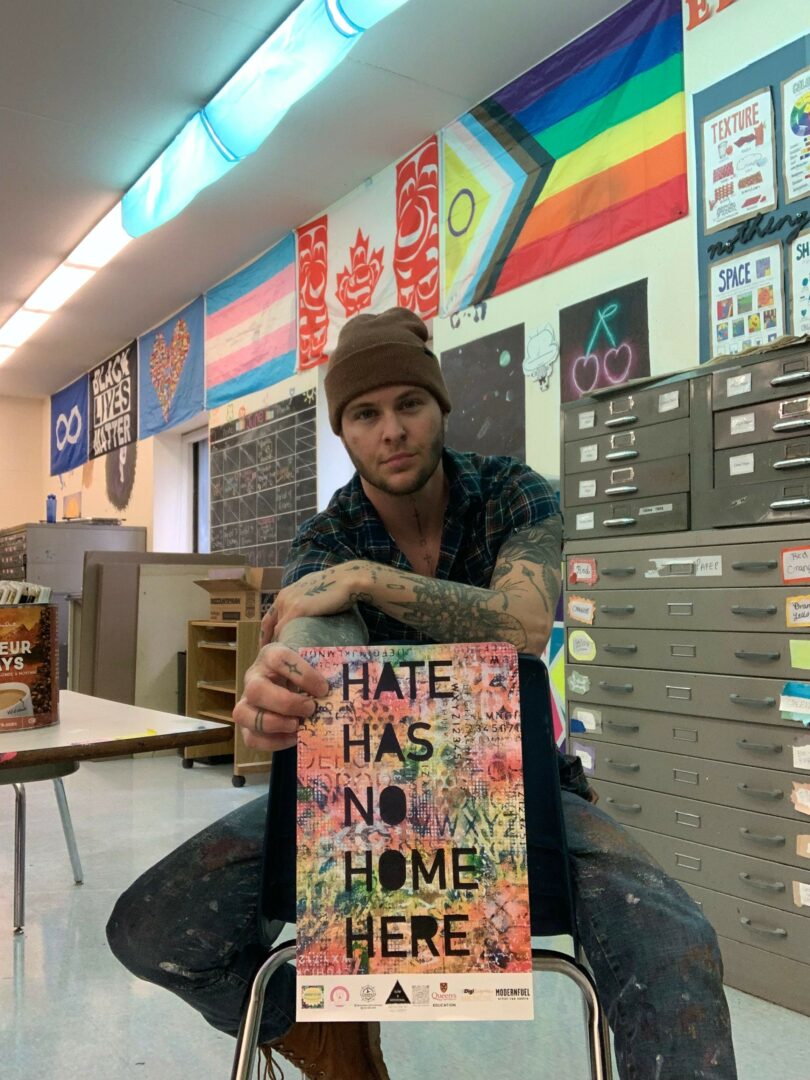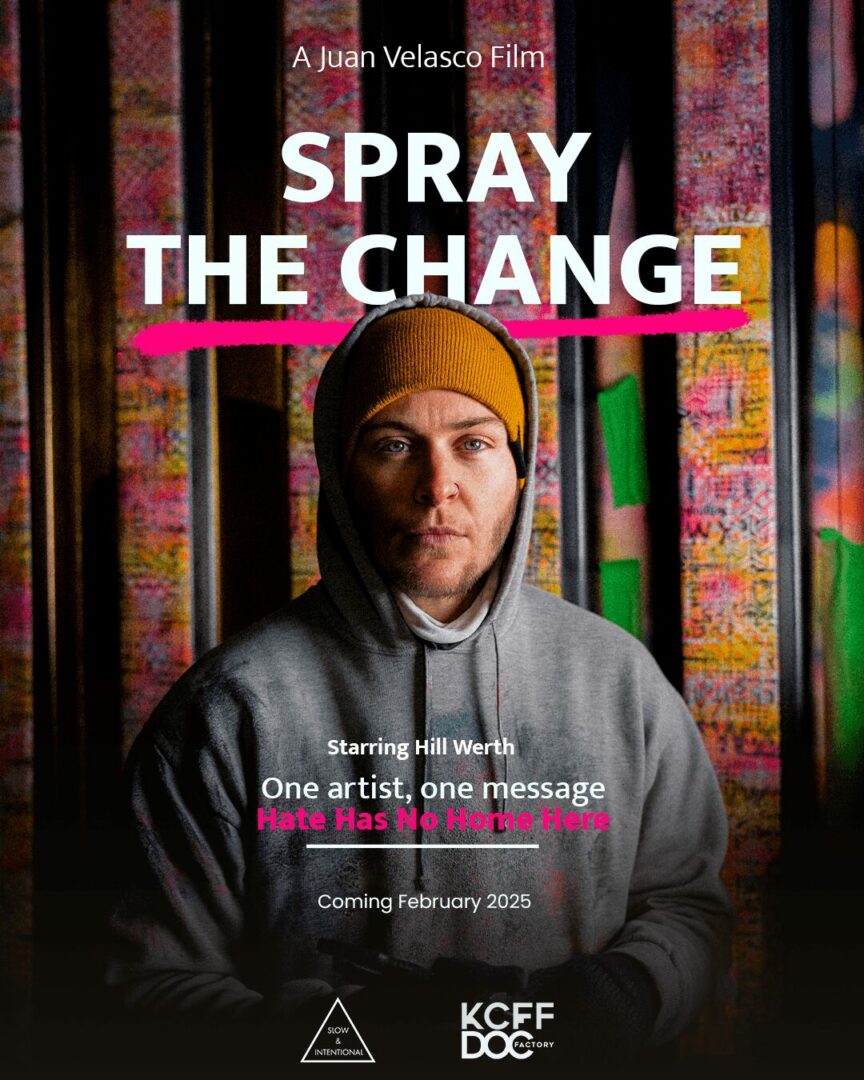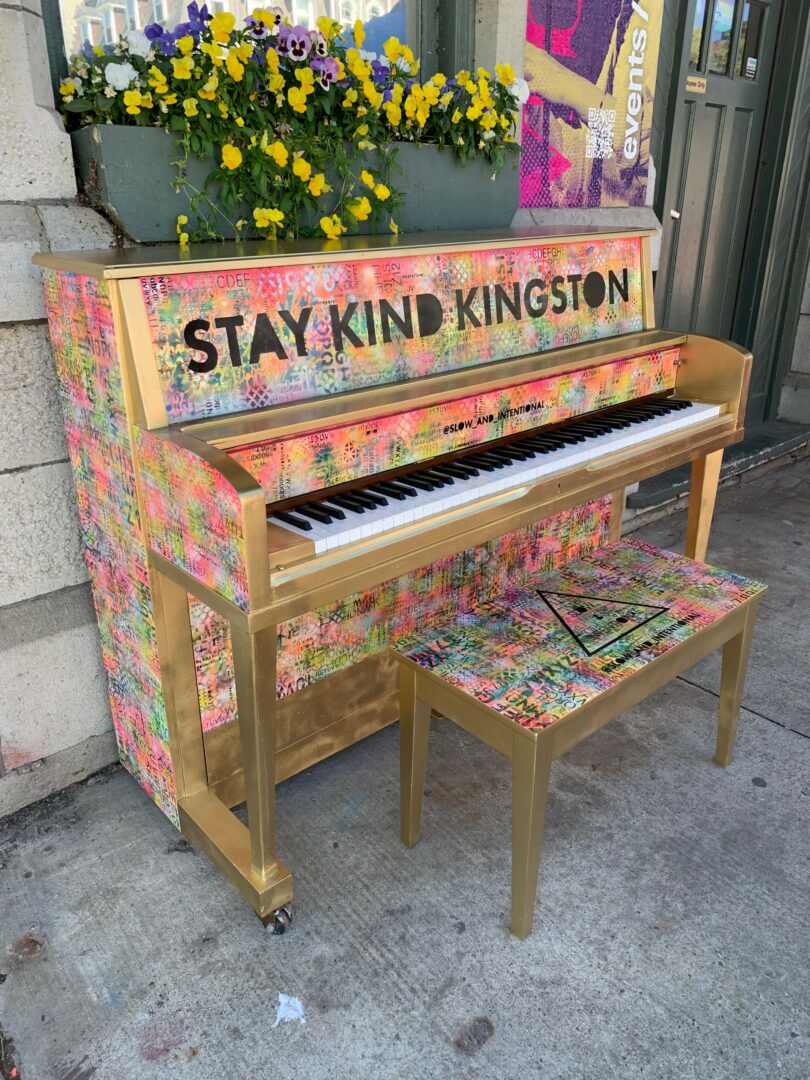Hill Werth shared their story and experiences with us recently and you can find our conversation below.
Hill, a huge thanks to you for investing the time to share your wisdom with those who are seeking it. We think it’s so important for us to share stories with our neighbors, friends and community because knowledge multiples when we share with each other. Let’s jump in: What are you most proud of building — that nobody sees?
Being a bonus parent
Can you briefly introduce yourself and share what makes you or your brand unique?
Hill Werth is an internationally recognized trans non-binary mixed media artist, activist, and educator based in Kingston, Ontario. Born and raised in the U.S., Hill has been an artist and athlete throughout their life, earning a full scholarship to UCLA where they graduated in 2009 with a degree in history and art history. A former All-American track and field athlete and Olympic hopeful in bobsled. They moved to Kingston in 2021 to marry their wife, becoming a permanent resident of Canada in 2022. Hill completed teachers college at Queens University, and is an art teacher in the Upper Canada District School Board. Hill’s artistic practice is rooted in layering, balance, visual rhythm and explores visibility, awareness, and representation, drawing from personal experience. Active in Kingston’s art and education community and beyond, Hill continues to advocate for inclusion and creative empowerment through art.
Thanks for sharing that. Would love to go back in time and hear about how your past might have impacted who you are today. What did you believe about yourself as a child that you no longer believe?
When I was a kid, I was diagnosed with multiple learning disabilities, and that label shaped how I saw myself for a long time. Being told I was “different” made me feel like I wasn’t smart, and I carried a lot of shame around that. I got made fun of a lot in school, and back then, there wasn’t really a conversation about how the things that make us different can actually be our strengths. Because of that, I didn’t have much confidence to try new things—I was quiet, timid, and constantly second-guessing myself. It wasn’t until I became an adult and truly came into who I am that I started to understand that my differences are not flaws but sources of creativity, resilience, and perspective. I’ve learned that the things that once made me feel out of place are actually what make me powerful, and I now celebrate those parts of myself rather than hide them.
When did you last change your mind about something important?
The most recent time I changed my mind about something important was when I decided to legally change my name to Hill Hawkins Werth. For a long time, I hesitated because I knew how big and personal that decision was—it meant fully embracing my identity and letting go of the name that no longer reflected who I am. Eventually, I realized that changing my name wasn’t about leaving anything behind; it was about aligning my outer life with the person I’ve become. Making that change gave me a sense of peace, confidence, and authenticity that I hadn’t fully experienced before. It was a powerful reminder that it’s never too late to make choices that honor who you truly are.
So a lot of these questions go deep, but if you are open to it, we’ve got a few more questions that we’d love to get your take on. Is the public version of you the real you?
Yes—what you see is what you get. The public version of me is always real, but I think people sometimes only see what they want to see, especially through my online presence. What most don’t see are the daily struggles or the quiet moments behind the scenes. It’s easy for people to form opinions or make judgments without ever having a real conversation, meeting you, or asking questions. I’ve learned that you can’t argue with people who are committed to misunderstanding you, or who twist your words to fit their own version of their truth. These days, I only give my energy to people who are kind and open-hearted. I don’t have the time or desire to engage with hostility or negativity—life’s too short not to lead with empathy.
Before we go, we’d love to hear your thoughts on some longer-run, legacy type questions. When do you feel most at peace?
I feel most at peace when I’m in nature or at home with my family—in my safe space, surrounded by love and calm. That sense of peace also extends to my chosen family, the people who truly see and support me. I feel it in my work as a teacher, being part of a community where I can connect, make a difference, and show up as my full self. I also find peace at markets, selling my merch and sharing genuine conversations with people who connect with my art. And, of course, I feel it when I’m creating or painting—there’s something grounding about being fully immersed in the process. I feel really lucky that my life allows me to do what I love every day, because that brings me peace in so many forms.
Contact Info:
- Website: https://www.etsy.com/shop/slowandintentional
- Instagram: @slow_and_intentional
- Facebook: Hill Werth. Or Slow & Intentional




Image Credits
– Juan Velasco
– Garrett Elliott
so if you or someone you know deserves recognition please let us know here.




